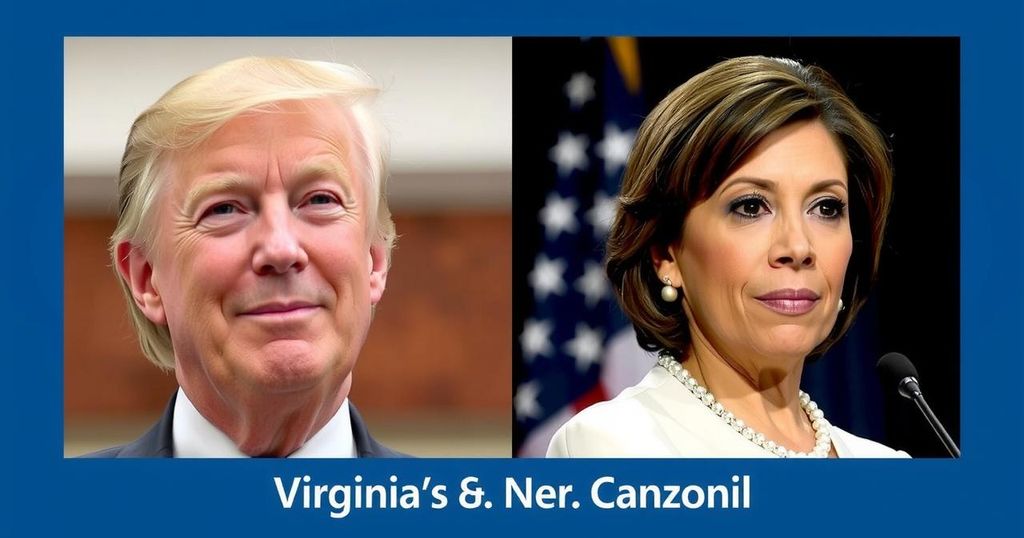Overview of Virginia Gubernatorial Election 2025 and Related Electoral Trends

The Virginia gubernatorial primaries for 2025 show minimal competition, with Abigail Spanberger unchallenged on the Democratic side. Republican candidates Winsome Sears and Merle Rutledge are vying for the nomination. Meanwhile, Alaska retains its ranked-choice voting despite defeats in other states, and recall election statistics indicate that 16% of targeted officials were removed from office between 2014 and 2023.
As the 2025 Virginia gubernatorial election approaches, the primaries exhibit a notable lack of competitiveness. Currently, on the Democratic side, Abigail Spanberger is running unopposed. Meanwhile, Republican candidates Winsome Sears and Merle Rutledge are competing for their party’s nomination, with Sears gaining significant media attention and endorsement from incumbent Governor Glenn Youngkin. Spanberger, a former CIA officer and current Congressman, has focused her campaign on reducing childcare costs, addressing issues faced by working parents in Virginia.
Historically, Virginia’s Democratic primaries have included both competitive races and instances of candidates running unopposed. In 2017, Ralph Northam’s primary against Tom Perriello was particularly close, while in 2021, Terry McAuliffe won decisively against multiple contenders. On the Republican side, competitive primaries marked the past elections, with notable battles occurring in 2017. The 2025 election is crucial, as Republicans aim to secure a second consecutive gubernatorial win, which has not occurred since the 1990s.
In a related electoral update, Alaska’s ranked-choice voting system was confirmed to remain in place following a recount. Although this was a win for RCV proponents in Alaska, voters in five other states decisively rejected measures to adopt or retain RCV. Proponents spent over $66 million in these campaigns, significantly more than their opponents. FairVote CEO Meredith Sumpter remarked on the challenges faced in promoting RCV amidst a national opposition.
In terms of recall elections, recent data indicates that 16% of targeted officials faced removal between 2014 and 2023, with 546 out of 3,675 officials removed from their positions. Drawing attention to this trend, Ballotpedia will soon release its annual Recall Analysis, reviewing recall activities in detail.
Looking forward, the Virginia primaries are set for June 17, 2025, with the general election occurring on November 4, 2025, making this a pivotal electoral year for both major parties in Virginia.
This article outlines the current landscape of the Virginia gubernatorial election set for 2025, highlighting the candidates and their status in the primaries. The examination of ranked-choice voting systems across various states sheds light on recent electoral dynamics, particularly in Alaska. Additionally, recurring recall elections and their outcomes are discussed in the context of governmental accountability. These topics provide context for understanding Virginia’s electoral process and the broader implications for future governance.
In conclusion, the Virginia gubernatorial primaries currently reflect a lack of opposition within the Democratic Party, with Spanberger running unopposed, while Republicans face a competitive race between Sears and Rutledge. The implications of the recent ranked-choice voting outcomes in Alaska contrast sharply with the broader trend of rejection seen in other states. Furthermore, the patterns of recall elections signal a significant aspect of political accountability. As the 2025 election date approaches, these trends warrant close observation from both political analysts and the electorate.
Original Source: news.ballotpedia.org







